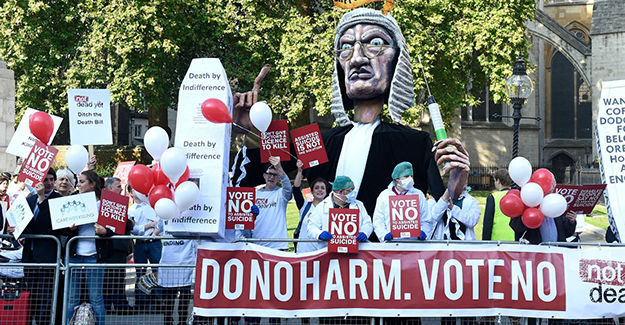On Jan. 4, Bishop Jaime Soto of Sacramento thanked Californians for their “admirable efforts” to overturn the “End of Life Act,” a bill legalizing assisted suicide, but announced that the referendum had failed to garner the required 365,880 signatures. Bishop Soto promised to continue to fight the legislation through educating Catholics and working with Catholic healthcare providers.
The rarely attempted referendum is a difficult process, requiring proponents to gather approximately 366,000 signatures in only 90 days — a badly timed goal for this referendum due to the distractions of three major holidays: Thanksgiving, Christmas and New Year’s.
“Your energy and passion in gathering signatures to overturn this ‘travesty of compassion’ demonstrates to all Californians and elected officials your firm commitment to protecting life at all its stages,” Bishop Soto said on behalf of the California Catholic Conference (CCC).
kathleen-domingo, associate director of the Office of Life Justice and Peace, applauded the hundreds of volunteers that united in the signature gathering effort at parishes.
“This is not what parishes are used to doing, especially at this time of year,” she said, noting the intense Advent schedule. “They decided it was important to stand up for human dignity. We’re sorry the result wasn’t on our side, but we’re pleased to see people mobilize so quickly, making this life issue a priority.”
Many opponents of assisted suicide are joining with the Catholic bishops to find other ways to overturn or mitigate the impact of the new bill.
“We will explore other options, including legal action to protect vulnerable seniors, the infirm and the disabled from being pressured to end their lives prematurely because others consider them to be a burden or might benefit financially from their death,” said Dr. Mark Hoffman, a member of The Coalition Against Assisted Suicide.
Hoffman notes that the initial “physician assisted suicide” law failed when voters realized that the bill was especially dangerous to low income Californians. After the bill was rebranded as the “End of Life Act” (ABX2-15), the Legislature passed the bill in a special session where the measure was not eligible for consideration. Despite this illegality, Gov. Brown signed the bill into law on Oct. 5.
“The referendum process proved to us that voters are concerned about this law once they learn about the many flaws it contains,” Hoffman said. “The law doesn’t even require a witness to be present to ensure that a vulnerable person is not killed by a third-party who might benefit from the death, such as an heir or insurance beneficiary.”
The law also does not consider these deaths as suicides, Hoffman said. The death certificate lists the person’s terminal illness as the cause of death, a potential escalator of California elder abuse. He also notes that “virtually every terminally ill patient suffers from depression,” but the law fails to require that patients undergo a psychological examination before obtaining assisted suicide.
“Our laws should instead ensure that seniors, the terminally ill and the disabled receive the medical and psychological support they need when they are in a vulnerable state,” Hoffman said. “We look forward to presenting our case in other forums as necessity and opportunity afford.”

